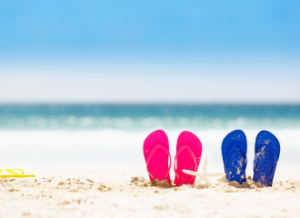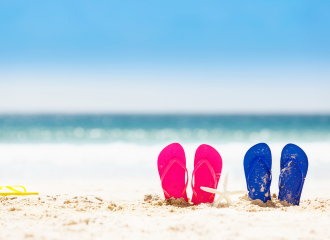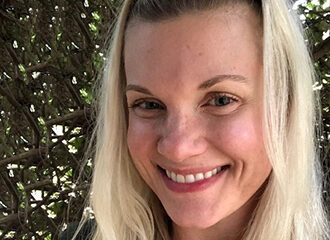Summer is officially here and with it comes vacations, pool parties, cook-outs, and lots of time outside. It’s often an exciting and much needed season of rest and relaxation, but it can also be a very difficult time for those in eating disorder recovery. If you’re feeling anxious about maintaining your progress, this post can help you prepare for the upcoming months.
Summer & Eating Disorders

It is important for individuals to be aware of these challenges and to work with their treatment team to develop coping strategies to manage them. With support and a commitment to recovery, individuals can successfully navigate the complexities of summer and continue their path to healing.
How Summer Complicates Recovery
As a first step, identify all the situations that may be triggering for you this season. It’s not uncommon to feel anxious at the thought of wearing warm-weather clothing or a swimsuit to the pool or beach. The media’s fixation on “Summer Bodies” and the pressure to dress or look a certain way certainly doesn’t help. Nor does the fact that summer travel often means a disruption in routine, which can be difficult for folks at any stage of recovery. Mealtimes might also be challenging. Summer is known for its picnics, BBQs, and cookouts, and these events, where eating and socializing are the focus, can cause anxiety, fear, and overwhelm, and can even increase urges to isolate and avoid.
Below are five tips to overcome possible anxiety, maintain those summer vibes, AND keep up with your recovery.
- Create and Maintain Structure: The eating disorder voice is very good at justifying all sorts of thoughts and behaviors, especially when out of the typical routine. It is crucial to create and maintain a structure and routine each day, including making time for all meals and snacks.
- Plan Ahead: There are many unknowns during the summer months after your school schedule ends, when you’re taking a trip, or attending a party. Thoughts may include “what foods will be served?” “Where is the nearest restaurant?” and “What if they don’t have the foods, I eat at a friend’s house?” Part of ED recovery is leaning into the discomfort, practicing tolerating the stress of the unknown and going with the flow. However, creating a plan to cope with these anxiety provoking times can be helpful. A plan might include identifying ways you’ll respond in certain scenarios, asking for support prior to an event, or creating small, do-able goals to gradually face your fears.
- Nourish the Body and Soul: In the summer, it is common to be more active due to the longer summer nights, extra time, and the variety of outdoor activities. This also increases our energy and hydration needs. Make sure to nourish the body with plenty of fluids and a variety of foods. Remember that food can also be more than fuel. Allow it to be a source of pleasure, connection, and culture. It’s equally important to nourish the soul by connecting with others during this time of year. Maybe ask a friend to go to lunch one day or encourage everyone to pack food to share for the day on the river.
- Dress for Success: Dressing comfortably in recovery is important, especially during the summer. If you feel pressure to dress a certain way, try shifting the focus to your physical comfort, your body’s needs, and your personal preferences —t-shirts, lightweight airy fabrics, and loose flowy attire are great options when we want to dress for the hot weather. Consider the ways your swimwear might protect you from the elements or help you engage in a summer activity. There are many options, such as one pieces, rash guards, swim shirts, and swim trunks. Having the access and ability to dress comfortably and meet our physical needs can have a powerful impact on body image and the relationship we have with our bodies.
- Ask for Help If You Need It: If you start to feel that you may need more help maintaining your recovery this season, don’t be afraid to ask for it! Whether that’s reaching out to your support people to help plan where to stop while traveling for lunch, relying on friends and family for support during mealtime, or asking your treatment team for more personalized assistance, the supportive people in your life want to see you succeed this season and might feel honored you asked them. If you believe that you may need a more intensive level of care, summer break can be the perfect time to return to treatment for both students AND parents.
Conclusion
Summer should be a fun and relaxing time for everyone—those in recovery are no exception! Though you may face triggers and unexpected feelings this season, maintaining recovery is possible and keeping these tips in mind may help. Summer can be an opportunity to make memories, connect with others, enjoy food, and spend time in nature. An eating disorder wants to rob you of these precious experiences, but your recovery is the path to truly enjoy and embrace them.



